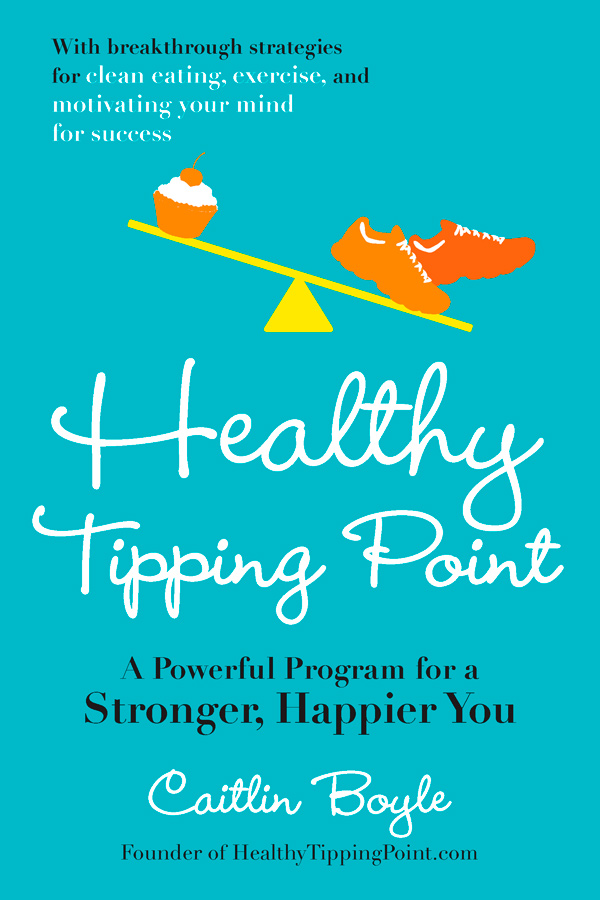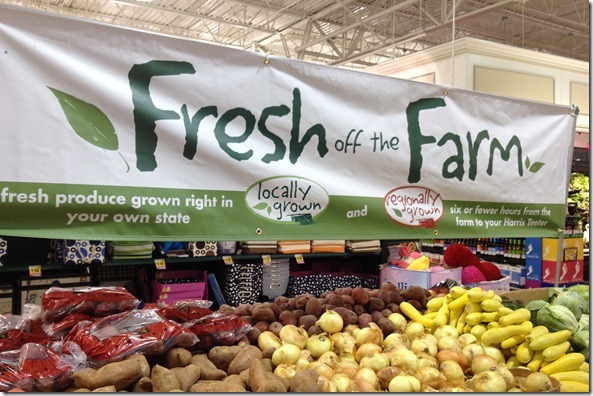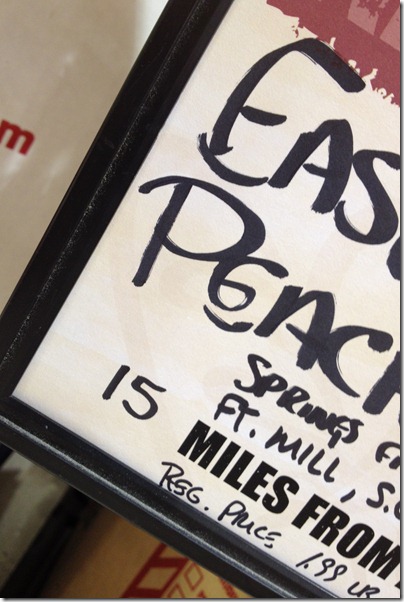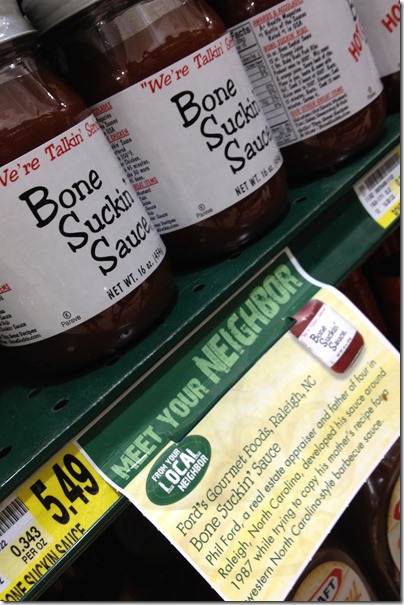Sleeping is overrated, apparently.
Well, for some of us. Some of us (cough cough – me) like it. A lot.
An early morning means that our errands are completed! I thought we had a fridge full of groceries, but looks were deceiving – we were out of produce. So H and I hit the store this morning and found this awesome display.
Harris Teeter is making an effort to promote local farmers. This display tells shopper exactly where the produce comes from, as well as the distance between the farm and the store. I bought peaches from a farm that is only 15 miles away and zucchini from a farm that is 25 miles away.
The store is also promoting local manufacturers of other products, like my favorite BBQ sauce.
I’m always torn between purchasing local conventional produce and organic products (when you can get organic and local, that’s ideal, of course). This topic is so complex that I devoted an entire chapter of the Healthy Tipping Point book to it (a whole book could’ve been written on it, though!).

Some thoughts – but this issue is crazy-complex!:
-
Organic products are produced without pesticides, herbicides, insecticides, and other chemicals, which is good for the environment and your body. Conventional products are not held to the same standard. As a result, conventional food is cheaper.
-
Organic is usually better for the environment, but not always. Food miles are the measurement of the distance a food product must travel between where it is grown to where it is sold. Increased food miles usually means increased fossil fuel emissions. Blueberries flown in from Argentina might be just as ‘bad’ for the environment as local blueberries produced with pesticides.
-
Generally, local products usually have a smaller carbon footprint in terms of food miles. It’s worth noting that local produces can actually use more fossil fuel depending on how they are produced – tomatoes grown in a hothouse in the winter, for example. Similarly, conventional produces come with an additional fossil fuel cost because of the fuel used in producing and transporting pesticides and other chemicals.
-
Did you know the West Cost supplies 75% of the apples sold in New York City? And the typical meal in America includes, on average, ingredients from at least five foreign countries?
-
One study revealed that green beans lose 45% of their nutrients in the 11 to 15 days between harvest, transport, sale, and at-home preparation. Broccoli loses 45% of its nutrients in the same time span. Thus, local greens may have more nutrients than imported greens because their travel time is lower.
A semi-local breakfast:
English muffin
Eggs
Strawberries
Peach (so tasty)
Do you opt for local or organic produce? Why? I try to balance my concern for my health and the environment with price and my desire to support local farmers, so I tend to buy some products organic and others not. Most of the time, if the produce is on the Dirty Dozen list, I opt for organic.







Henry is looking more and more like his Daddy!